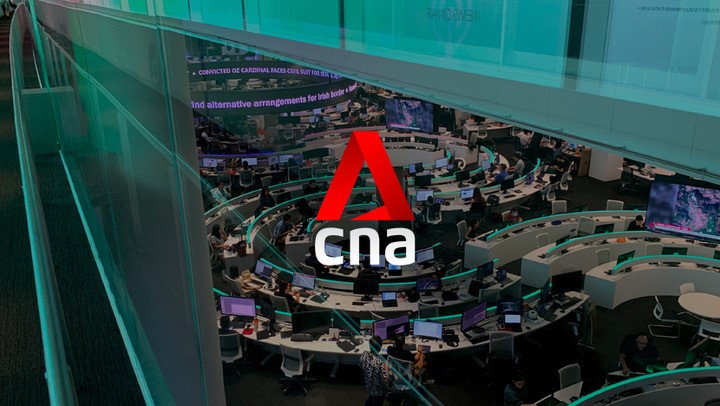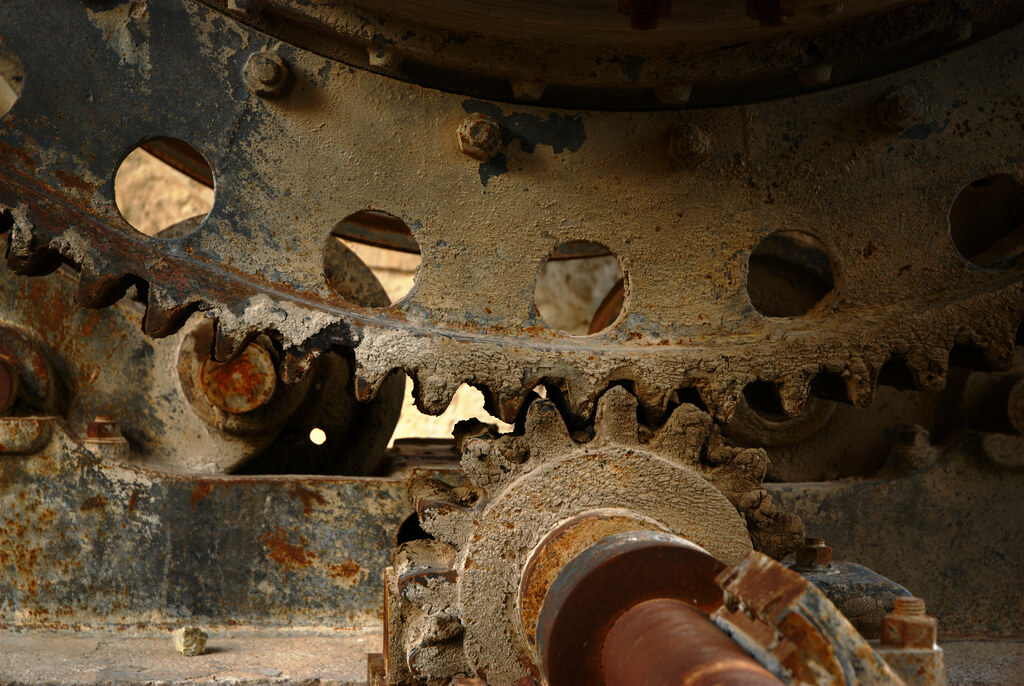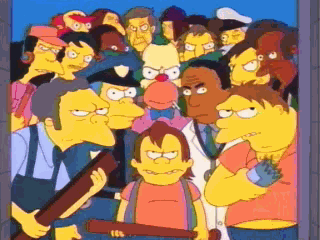

Consumer,General
Does the Malaysian government do anything to make sure that food is safe, and real?
over 7 years ago chiahoong limIn the advent of the recent case of fake baby formula in Johor, there is good reason to take a look into what the law is on certification of authentic food in Malaysia. This fake baby formula incident is by no means an isolated incident, as can be seen in this other case of fake stevia, and this one on fake honey. These sort of fake foods are not only dangerous for the human body, they’re also illegal in Malaysia!

But, did you know that food manufacturers can be held accountable if their factories are in bad conditions as well? Image paying a visit to a food factory, and seeing that the factory is very unhygienic, there are rubbish strewn around and there are rats building their very own colony there. There actually are laws that govern this area, and these laws will be discussed further down in this article.
Basically, this article will touch on two topics: first, how food manufacturers can apply for the “authentication” of their food products, and second, the laws and regulations surrounding food manufacturing facilities.
[READ MORE: What you can do if you bought fake food in Malaysia]
First, let’s talk about how food manufacturers certify their foods as authentic, then we’ll move on to the factories.
There are guidelines to apply for certification for authentic foods

These guidelines called Garis Panduan Skim Pensijilan Makanan Autentik are prepared by the Ministry of Health of Malaysia. The guidelines also fulfill the requirements of the Food Regulations 1985 in order to determine if the foods are safe for consumption. Since the guidelines are written in Bahasa Malaysia, the following information are translated from Bahasa Malaysia into English. The procedure of application for certification is as follows:
- Application to the Ministry of Health must be made via Form KKM/MA 1, which can be obtained from the Ministry head office, State Health Departments, District Health Offices and from the Ministry of Health website
- A lab report from a Ministry-approved laboratory of the food intended to be manufactured must also be submitted
- A certain amount of fees must be paid, depending on the number of products to be certified
After that, the process of certification is detailed in a handy chart within the guidelines. Long story short there is a committee within the State Health Department which will approve or reject the application.
The State Health Department will conduct checks and inspections at least once a year for any food manufacturing companies. Food sampling may be needed for verification purposes during these inspections. Failure to adhere to the guidelines will result in the retracting of certification of authentic foods, and having the logo on any packaging material becomes forbidden.
The next point goes into guidelines on food manufacturing facilities. These are different from the certification guidelines in that they’re aimed towards good manufacturing practices.
How does the Amalan Pengilangan yang Baik help?

There exists a set of guidelines called Amalan Pengilangan yang Baik (GMP) which are also written in Bahasa Malaysia. These guidelines serve to help the food manufacturing industry achieve higher standards in manufacturing foods for consumers. There are rules on the location of the manufacturing plant, the indoor floor plan of the plant, and even the lighting system, but for the purposes of this article, we will only be looking at the guidelines in relation to food and ingredients of food.
Section 6.2 relates to raw ingredients:
6.2.1 Di mana perlu, bahan mentah perlu diperolehi daripada pembekal disahkan.
Here it states that whenever possible, raw ingredients should be obtained from authorized sources. This is to eliminate chances of contaminated raw ingredients being used in the manufacturing process.
6.2.2 Penerimaan bahan mentah perlu diuruskan dan dipindahkan ke bahagian pemprosesan dan penyimpanan dengan cara untuk mengurangkan kerosakan dan pencemaran. Suhu bilik penyimpanan perlu dikawal untuk meminimakan kerosakan.
Raw ingredients within the manufacturing facility should be managed and moved in a way that reduces damage and contamination to the ingredients. The room where the ingredients are kept should be temperature-controlled to minimize spoilage.
6.2.3 Penerimaan bahan mentah seperti bahan pembungkusan perlu diuruskan dan disimpan dengan cara yang dapat mengurangkan kerosakan dan pencemaran, (seperti pencemaran habuk, kawalan terhadap ketinggian susunan bahan dan kerosakan ‘forklift’)
Even the packaging materials should be managed so that they are as far as possible free from contamination and damage.
Those are some of the regulations that are applicable for food manufacturing facilities. The trouble is, there is no external inspection under these guidelines, instead they state that manufacturers should do internal audits.
Not to worry, though. there are laws on factories which are enforced by the government. The laws provide for factories in general, not just food manufacturing facilities. However, since food manufacturing facilities are factories, the Act applies to them too.
Factories are actually scrutinized

The provisions of the Factories and Machinery Act 1967 covers a vast area regarding aspects of a factory’s management, so we will focus on hygiene and cleanliness, which are of utmost importance in manufacturing foods.
Section 22 relates to health issues:
(1) Without prejudice to any law relating to public health, in respect of any factory the following provisions relating to health of persons shall apply:
(a) every factory shall be kept in a clean state and free from offensive effluvia arising from any drain, sanitary convenience or other source and shall be cleaned at such times and by such methods as may be prescribed and these methods may include lime-washing or colour washing, painting, varnishing, disinfecting or deodorising;
Factories should be clean to the point where the factory workers’ health and public health should not be adversely affected. Are there any penalties for offending this section? You betcha.
Section 51(2):
(2) Any person who contravenes any other provision of this Act or any regulation made under this Act for which contravention no penalty is expressly provided shall be guilty of an offence and shall, on conviction, be liable to a fine not exceeding fifty thousand ringgit or to imprisonment for a term not exceeding one year or to both.
The occupier or owner of the factory can be fined up to RM 50,000, imprisonment up to 1 year or both. What if the factory continues to be dirty after that?
Section 51(3):
(3) Where the offence of which any person is convicted is a continuing offence, such person shall, in addition to the punishment inflicted in respect of that offence, be further liable to a fine not exceeding two thousand ringgit for each day or part of a day during which the offence continues after the first day in respect of which the conviction is recorded
If the offence persists, the offender can be fined up to RM 2,000 per day or part of a day during which the offence continues. For example, if the offence continues for another 4 days, the offender can be fined up to RM 8,000 in total.
What if the contaminated food product has been shipped out to retailers and grocery shops? Or if fake foods are circulating in the market? Can the government order these products to be taken off the shelves?
Yes, they can order these products to be removed from sale

This power to remove fake or dangerous food is provided under Section 13C(1) Food Act 1983.
Section 13C(1):
13C. (1) Where any food is found to have contravened or reasonably suspected to have contravened any provision of this Act or any regulations made under this Act, the Director or any authorized officer authorized by the Director may, by notice in writing, order any of the persons in section 24 to recall, remove, or withdraw from sale such food from any food premises within such time as may be specified in the notice.
The Deputy Director General of Health or any official authorized by him or her will notify the people who are making or selling fake or dirty/dangerous food, who then have to remove these foods from sale within the time specified in the notice.
People who are aware that they have fake food for sale, are also obligated to withdraw them from sale. Failing to withdraw these fake or dirty/dangerous foods from their shelves in both instances may be fined up to RM 100,000, a prison sentence of up to 10 years, or both.
Is there anything you can do if you suspect your food is fake or dangerous?

You have the power to make a change
This handy website was put up by the Ministry of Domestic Trade, Co-operatives and Consumerism (MDTCC) to help businesses and consumers obtain information regarding consumer product safety in particular for goods and services. There’s a page on products that were recalled by their manufacturers and a page on banned products.
You can either voice your complaints through said website, or call their hotline at +603-8882 5886. You can also check out the Ministry of Health’s website for useful information and also call their number at +603-8000 8000 for complaints of a similar nature.
For more specific things you can do if you bought fake foods in Malaysia, give this article a read!
Lastly, please be safe when buying any food products, especially ones that are highly in demand, such as baby formula, and honey. If the price sounds too cheap to be true, especially when compared to its commercial counterparts, think twice.
add me on overwatch my doggies shusui#11874